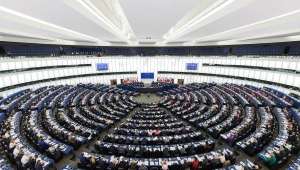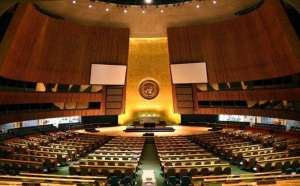
Radu Soviani: Mr. Munteanu, what would a one-million coupon invested in SIFs have meant if there had been decent management, from launch, from listing, until now?
Florian Munteanu: An investment coupon, actually a privatization certificate and a privatization voucher, issued in 1991 and 1994, meant one million lei at that time and represented 30% of the national wealth at that moment. That was the idea.
I drew an analogy with stock investments in developed markets, especially in the United States, from similar investment funds. Berkshire Hathaway is the best example, a closed-end investment fund similar to SIFs. I adjusted that amount with inflation in the US and Romania, and I reached a value at the end of 2021 of 26,932 new lei.
Radu Soviani: So, the million would have meant, if it had followed a decent evolution, over 5,000 euros.
Florian Munteanu: Yes. Around 5,400-5,500 euros at the current exchange rate.
Radu Soviani: Instead of 5,400-5,500 euros, what do we have?
Florian Munteanu: If we talk about what we have at the moment, each SIF's value leads to a different sum, but overall, between 1,200 lei and 4,000 lei, adjusted with those share splits. Of course, we must add the dividends given over time, and for a real representation at the current moment, they should also be adjusted for inflation, in the other direction, brought to the present, and then the values would be higher.
Radu Soviani: Not much higher.
Florian Munteanu: Not much higher, but at the level of the most performing SIFs, not mentioning names here, but there are some that are more professional in their relationship with investors and in the way they treat investments, it could be somewhere around 10,000 lei as a total return, adding these dividends.
Radu Soviani: How do you explain this significant divergence from a comparable evolution with Berkshire Hathaway, as you mentioned, considering Romania was starting from a lower point, the opportunity was ahead, and the challenge had to come, and the returns had to be higher?
Florian Munteanu: It's a very good point of view because the Romanian market, being a developing economy, has grown, however, we must admit, in the last 25-30 years more, percentage-wise, than Western markets or the US that we want to compare ourselves to because we started from a much lower base. It represented a much greater opportunity to achieve performance. The short answer to your question-how to explain this difference-can be given by two elements: one is the level of competence of management, but perhaps the most important factor is the level of integrity in adhering to transparency and corporate governance rules, to put it in a friendly way. A more aggressive way would be what we generally call corruption. First, performance, and second, transparency and adherence to the rules of integrity and corporate governance.
Radu Soviani: So, rather a lack of performance in management and more of a lack of transparency.
Florian Munteanu: Yes. Those were the elements that led to this difference.
Radu Soviani: I was recently in Arad, we met at the general shareholders' meeting of SIF1. I was shocked: there were 14 people there; the rest had voted by correspondence and represented 32 percent of the number of shareholders, those who voted by correspondence and those physically present there. How do you explain this percentage? What does it tell us?
Florian Munteanu: First of all, I can tell you that I have been a shareholder in some of these SIFs for 15 years, so I am a very stable and long-term shareholder. During the time I was in the country, when time allowed, I also attended some of these general meetings of shareholders, and I want to tell you that at many of them, the attendance was much lower than what you saw now. There were general meetings where 2-3 shareholders were present in the room, and those votes that came by correspondence, which could be more or fewer depending on the situation. Most of the time, the Assembly was not held at the first meeting because there is that minimum quorum of 25%. If that minimum quorum of 25% is not reached, the assembly is held a second time, and the attendance could be 16-20%, there were cases. So, 32% is already progress compared to other recent situations. Precisely because lately there has been a growing interest around the SIFs, thanks to investors who have started to ask questions within these SIFs. But undoubtedly, this 32% is very low and indicates very low shareholder involvement. First and foremost, this lack of involvement is explained by the fact that the ownership structure is very fragmented. There are indeed 5 million shareholders for each of these SIFs, representing the majority of Romanians who were entitled to receive these shares in the "90s. Some have sold these shares, but still, the majority have retained these shares.
Radu Soviani: Some don't even know they have them.
Florian Munteanu: Some don't even know they have them, unfortunately, some may have passed away in the meantime, and the successions that should have been made to their heirs may not have been completed, and the heirs don't know they have these shares from their parents.
Radu Soviani: Losing dividends because if they don't cash them within three years, they expire. Who has an interest in such a large number of dormant shareholders, and how is it explained?
Florian Munteanu: Firstly, it is explained by the fact that these shareholders, from the beginning, saw that their interest is not necessarily a priority for the management of these respective companies, the SIFs. So, those who knew a bit more were interested, but at some point, they considered it more worthwhile to take their money rather than remain involved. Those who didn't know or were less interested gradually distanced themselves from this phenomenon, or as I said, in large part, these shares were lost through life-related events that happen.
Radu Soviani: Would normal, decent management be interested in making all shareholders active, or rather indifferent?
Florian Munteanu: Of course, professional management has an interest in stimulating investors. First and foremost, they have an interest in attracting new investors, marketing, and presenting the company well to attract as many investors as possible to increase the value of the share and the company on the stock exchange. Because in this way, all shareholders win-both existing and new ones-and primarily they win as management in a professional corporate governance system. By increasing the company's value, they are rewarded accordingly. Unfortunately, in Romania, the system is a harsh word, it would be perverted. Because these shareholders prove to be captives, being so many and not getting involved, the majority of them cannot make a fundamental difference at an individual level. That is, if 1-10-500 get involved, they cannot make a very significant difference due to this fragmentation. It happens in various circumstances that someone ends up having 20% of this fund and practically controls almost all decisions, precisely because of this fragmentation.
Radu Soviani: With 20%.
Florian Munteanu: With 20% or even less.
Radu Soviani: At least in one SIF, we end up in a situation where they control each other. You mentioned at the General Shareholders' Meeting of SIF1 about the lack of liquidity for these shares, and you also mentioned that liquidity is diminished, even through the fact that the investment fund buys SIF1 shares from the market, using money from the same SIF1, and votes for the management of SIF1. How do you explain this scheme?
Florian Munteanu: Liquidity is primarily reduced because most investors who are truly active on the Bucharest Stock Exchange have lost interest in these shares. Over the course of 20-something years since they've been active on the stock exchange, investors have often been disappointed, and so, these shares, the SIFs, largely fell off their radar as portfolio investments because they did not bring value. If we look at the market price of these shares, especially in some SIFs, and compare it with the net asset value, which means what this SIF has as portfolio holdings divided by the number of issued shares, it leads to this unitary net asset value, so we observe that the price is much lower than the unitary net asset value. There are situations where this discount is 65%. If the price of a share is 2.3 lei, the net asset value is 6.5 lei.
Radu Soviani: So, a share there has a corresponding value much higher than the market value. Why this discount?
Florian Munteanu: That value, I must say, 80% of it is practically what is called mark to market, meaning there are assets that can be liquidated very quickly, and here we are talking about shares in banks such as BRD, Banca Transilvania, holdings in SNP Petrom, Romgaz, and so on, liquidities, and these holdings in certain funds that some SIFs have, and paradoxically, these Romanian investment funds, small as they are, buy shares in these SIFs, creating a very strange situation, which, according to European and American legislation, represents a conflict of interest. There are very clear European Directives that define these situations.
Returning to your question, why is this discount so high, it is because of this lack of interest that I mentioned at the investor level. In fact, I conducted some analyses, some studies, through which I saw that this discount, this lack of correlation between the very low price and the net asset value, this discount is perhaps the largest in the world. Nowhere in the world is there a situation where the value of holdings in a closed-end investment fund is, let's say, one hundred percent, and the value of the price is 35% of that value.
Radu Soviani: So why isn't the stock attractive?
Florian Munteanu: Well, if you talk to various investors, they express reservations about how they, as investors, are perceived and treated by the management of these companies.
Radu Soviani: At SIF1, I haven't seen dividends for many years...
Florian Munteanu: Yes, you took the example of SIF1, indeed, SIF1, the last time it paid dividends was in 2015, for the year 2014, so practically from the profit of 2014.
Radu Soviani: After which, it ignored for six years...
Florian Munteanu: Actually, seven years, speaking from memory.
Radu Soviani: Why would they do that?
Florian Munteanu: In 2015, a new management came in, which still exists there, and that is their approach: to accumulate these funds in, let's say, a lack of interest in providing returns, economic benefits to all investors. But what happened here is that these additional capital resources were allocated over time, with a temporary evolution, in certain investment funds. You can see them in the annual reports and various quarterly reports that are issued, in certain investment funds from Romanian companies, small ones, which, in turn, through various other funds associated with the same companies, buy shares in financial investment companies, i.e., the SIFs that are associated with the same management - for SIF1, in the example you provided - which obviously creates a major conflict of interest because, imagine this: you are a fund, someone comes to you and says, "Here are 50 million lei, I'll invest with you, and you'll earn a commission of 2-3% per year."
Radu Soviani: Sometimes 12%.
Florian Munteanu: 12%, indeed, there was an absolutely incredible situation with one of the funds involved in this discussion. But that person who comes to you and gives you that money says, "Invest these funds in my shares so you can come to the AGM and vote." How do you think you'll feel compelled to vote in those AGMs, knowing that the gentleman invested - inaccurately put, he gave you the money, and you have to vote?
Radu Soviani: Correct me if I'm wrong: instead of paying dividends to shareholders since 2015, the management in this case chose to make the dividend money available to certain funds to obtain, in return, voting rights. Maintaining the position. Am I wrong?
Florian Munteanu: This is a reasoning that many investors in the capital market make, looking at the facts observed in everyday life within these companies. And this is the reason, or one of the reasons, why many investors avoid making investments in these funds, although probably, from a fundamental perspective, from an economic indicators standpoint, they represent the cheapest investment you can make in Romania, and implicitly, they represent the investment with the highest growth potential to approach the real value.
Radu Soviani: In 1991-1994, the two stages you mentioned, 18,750,000 Romanians were considered to be shareholders in the SIFs, initially, I think each SIF had around 9 million shareholders, owning 30% of the economy. Who now owns what 18 million shareholders owned, in reality?
Florian Munteanu: You see, probably the answer here is that a good part, maybe the largest part of that value, that asset, has been lost through that lack of performance we talked about, compared to similar investments in the countries we aspire to. Of course, at the moment, the SIFs no longer represent anywhere near 30% of the economy.
Radu Soviani: They had banks in their portfolio, they had BCR, which meant a significant stake...
Florin Munteanu: Yes, they had BCR, BRD, the other banks.
Radu Soviani: Were these funds simply lost?
Florin Munteanu: A part exists in the current form, which is a smaller part, and, again, at some of the SIFs, it was given as dividends over time to those administrators who actually wanted to have an OK attitude towards investors. Part of it went through this lack of efficiency and transparency, and weak corporate governance we talked about. On the other hand, we must acknowledge that the Romanian economy as a whole has grown more than these investments related to the SIFs. So, all these factors have led to the fact that currently, in terms of proportion and influence, the SIFs represent only a small fraction of that 30% that the voucher and privatization certificate meant in 1994.
Radu Soviani: Alright, but their role was to distribute ownership to Romanians and, secondly, to grow.
Florian Munteanu: I need to make one more amendment. There are people who were directly involved in that privatization process, I was just a child then, but many Romanians submitted the voucher directly to commercial companies.
Radu Soviani: Other commercial companies.
Florian Munteanu: So, they only received some residual shares in these SIFs. They didn't receive 1000 shares.
Radu Soviani: Only those who went with the entire million to SIF could have this return. The rest deposited it in others, generally had happier or less happy experiences.
Florian Munteanu: All these people received a limited number of shares in the SIFs, between 6 and 38 shares.
Radu Soviani: They didn't even know they had them...
Florian Munteanu: They didn't know. But these were dividends that the Romanian state granted when it managed these SIFs, which were then called Private Ownership Funds (FPP), and they were not paid in cash but were capitalized into shares given for free to those who held the privatization certificate and voucher.
Radu Soviani: Can we say now that someone controls a good part of the SIFs?
Florian Munteanu: Yes, we can. In the Romanian investment environment, most investors interested in SIFs know, for example, that SIF1 directly controls SIF4 (Muntenia), as it owns 99% of the shares and is also the main shareholder, holding 15% of the shares. Additionally, through the ownership that SIF Muntenia has, which we have already established that SIF Banat controls, and through these investment funds we talked about a bit earlier, I know that the major role in determining the policy, actually the sole role, in determining the policy of SIF Oltenia belongs to SIF Banat Crişana.
Radu Soviani: So, a group that controls SIF Banat Crişana also controls the other two...
Florian Munteanu: This is quite clearly established in the market; you can talk to dozens and dozens of investors who can confirm the same thing.
Radu Soviani: Those who deny it do it unbelievably.
Florian Munteanu: Yes. There are documents, various sources that form the basis of all these statements that many investors make.
Radu Soviani: There are connections, many of them very visible. I want to ask you: for 15 years, you've been an investor in SIFs. How do you see the fact that they buy shares from each other?
Florian Munteanu: This is largely related to corporate governance, which, globally (again, we refer to developed countries, as we aspire to be there; we are, after all, part of a club - the European Union - which has authority over us in terms of imposing rules, but it takes time and is not implemented to the extent it should), in the European Union and the United States, these things are clearly regulated. There are policies to avoid conflicts of interest; normally, these things are not allowed. Certainly, a company can buy shares in another company, but the same company cannot buy back shares in itself. Because it involves a double vote.
Radu Soviani: In other countries, it is done as in Fondul Proprietatea: they buy directly and cancel the shares.
Florian Munteanu: Exactly. Or, when this situation occurs, and not intentionally, I am referring to developed countries, an action is taken to eliminate this conflict of interest by abstaining from voting or by suspending the voting rights associated with those shares. In Romania, this did not happen in the case of these SIFs, which created this conflict of interest where someone who had an interest in earning a commission voted with full knowledge of this conflict of interest.
Radu Soviani: So, all they had to do was vote for those who paid them a commission by making funds available. That's all they had to do in exchange for the commission. They didn't invest in other entities - they predominantly invested only in SIFs.
Florian Munteanu: Predominantly, indeed. Whether they invested or not, in a certain period or another, is less important, given that there is a conflict of interest here. But the reality is that often they invested predominantly here. Other times, to create the impression of objectivity, of course, they could choose to invest elsewhere if they had the financial resources or if the relevant authorities allowed them or whoever decided. So, these things don't happen. There are many examples that can be given, and we are not talking about situations in the US, where the environment is the most uncompromising against conflicts of interest. I'll give you an example from an environment a bit closer to us - we're talking about France, with Renault-Nissan. Renault owns shares in Nissan, Nissan owns shares in Renault. But Nissan cannot vote at Renault. So, it only goes in one direction. Now, I'm speaking from memory, so I allow for this approximation.
Radu Soviani: It's very vividly expressed and understandable...
Florian Munteanu: I would add that it is a great pity that certain companies in Romania, where there is a very large number of shareholders, certainly the largest number of shareholders of any company in Romania, are not managed in the interest of all shareholders. Especially since this situation, with a very large number of shareholders, was deliberately created by the Romanian state through a noble action of endowment or the granting of part of a national wealth to all Romanians, and later the Romanian state did not oversee in a neutral, transparent, and uncompromising manner the application of good governance rules or the normal and natural rules applied in any capital market worldwide to protect the interests of these people who largely may not have the necessary experience to take the measures needed to protect their wealth. So, the role of state institutions is simply to ensure that the rights of these shareholders are respected to the same extent as the rights of larger or more powerful shareholders. Because all shareholders are equal. This is a principle of any company. According to the law in Romania.
Radu Soviani: Thank you!

























































